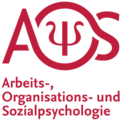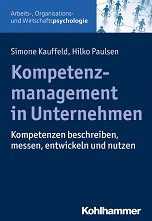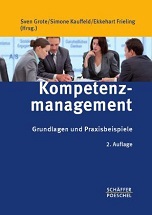
Competencies aggregate the knowledge, abilities and skills, enabling us to act in an organised and creative way in unknown situations. We focus on modelling competencies, innovative ways of assessing competencies and ways of developing competencies. We develop scientifically sound solutions that we put to the test in the field. For example, web based IT-solutions for diagnosing competencies offer a large potential for modern competence management systems.
Work-related learning can be split up into formal and informal learning. For the effectiveness of learning, learning culture is of great importance. Furthermore, we are interested in researching learning-enhancing conditions at the university. In the context of formal learning, particularly with regards to workshop research, learning transfer plays a central role. In our research. We investigate the relevant factors for successful transfer of a workshop’s contents into everyday work.
Energy-4-Agri (2020-2023; BMWi)
IN-DIG-O: Cooperating and Learning in cooperative networks in the construction industry (2019-2021, BMBF, ESF)
KAMiiSo - Digital tools to support communication and method application in collaborative design (2017-2020, BMBF und ESF)
Integrierte Kompetenzentwicklung im Handwerk (In-K-Ha; 2013-2017, BMBF)
Trainings Handlungsbezogener Kompetenzen (HBK)
Die intelligente Lehr- und Lernumgebung (ILehLe; 2016-2019; BMBF)
TU4Teachers - Qualitätsoffensive Lehrerbildung (2016-2024, BMBF)
SCOUT: Promoting networking between international and German students (2014-2018; TU Braunschweig)
teach4TU Project InSight (2016-2017)
Books:

Kauffeld, S. & Paulsen, H. (2018). Kompetenzmanagement in Unternehmen. Kompetenzen beschreiben, messen, entwickeln und nutzen [Competence Management in businesses. Describing, measuring, developing und using competences]. Stuttgart: Kohlhammer.
ISBN 978-3-17-030197-9
Kauffeld, S. & Frerichs, F. (Hrsg.) (2018). Kompetenzmanagement in kleinen und mittelständischen Unternehmen: Eine Frage der Betriebskultur? [Competence Management in small and medium-sized businesses: A question of business culture?] Berlin: Springer.
ISBN 978-3-662-54829-5
Kauffeld, S. (2016). Nachhaltige Personalentwicklung und Weiterbildung. Betriebliche Seminare und Trainings entwickeln, Erfolge messen, Transfer sichern (2., überarbeitete Auflage) [Sustainable personnel development and training. Developing seminars and trainings, measuring results, securing transfer, 2nd ed.]. Berlin: Springer.
ISBN: 978-3-662-48130-1

Grote, S., Kauffeld, S., & Frieling, E. (Eds.). (2012). Kompetenzmanagement: Grundlagen und Praxisbeispiele (2., überarbeitete Auflage) [Competence management (2nd rev. ed.)]. Stuttgart, Germany: Schäffer-Poeschel.
ISBN-13: 978-3-7910-2956-6
Kauffeld, S., Grote, S., & Frieling, E. (Eds.). (2009). Handbuch Kompetenzentwicklung [Handbook of competence development]. Stuttgart, Germany: Schäffer-Poeschel.
ISBN-13: 978-3-7910-2840-8
Kauffeld, S. (2006). Kompetenzen messen, bewerten, entwickeln [Measuring, evaluating, and developing competencies]. Stuttgart, Germany: Schäffer-Poeschel.
ISBN-13: 978-3-7910-2508-7